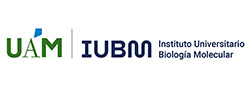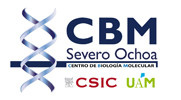Nitric oxide and bioactive lipids in the immune response
Nitric oxide (NO) and bioactive lipids as nitro-fatty acids (NO2-FA) or prostaglandins, are key mediators for maintaining cellular homeostasis, with an essential role in inflammation. Our research lines are dedicated to the study the role played by NO as well as nitro and oxo modified fatty acids in inflammation and in the activation and differentiation of T lymphocytes. We are currently studying the actions exerted by these agents on the activation of human T lymphocytes, analysing their involvement in the regulation of gene expression and activation of transcription factors. We are also interested in the analysis of chemotaxis, intercellular adhesion and the organization of adhesion and signalling receptors at the immune synapse. In addition, we are also examining the potential actions of these compounds on the selection of the adaptive immune response in human T lymphocytes.
NO is a key messenger in the pathogenesis of inflammation. In the immune system, NO has been considered to be a cytotoxic molecule associated with the response of phagocytic cells to pathogens as part of the first line of host defence against infection. However, NO can also regulate the adaptive immune response, linking innate and adaptive immunity. NO affects T helper cell differentiation and the effector functions of T lymphocytes, and is a potential target for therapeutic manipulation. In the last years, our group has been interested in the study of the regulatory actions exerted by NO in T cell functions, focusing on protein S-nitrosylation and fatty acid nitro-alkylation, leading to the formation NO2-FA, as important post-translational modifications by which NO can act as a signalling molecule during T cell-mediated immunity.
Fatty acid oxidative modifications result in the production of bioactive lipids including prostaglandins and NO2-FA, important signalling molecules that can modulate the inflammatory process and the immune response. We are interested in the analysis of their influence on diverse parameters of T lymphocyte function, focusing on their effects on transcriptional activation and gene expression and their consequences on cell activation and differentiation. Their anti-inflammatory and immunomodulatory effects take place mainly through their ability to covalently modify transcriptional regulatory proteins and enzymes and to activate various nuclear and membrane receptors, finally modifying protein function and altering patterns of gene expression. Research on the molecular and cellular basis of the actions of electrophilic fatty acids in inflammation and the immune response, will contribute to the understanding of the potential therapeutic benefits of these compounds.
Prof. Miguel Ángel Iñíguez Peña. Profesor Titular. Departamento de Biología Molecular. UAM.


